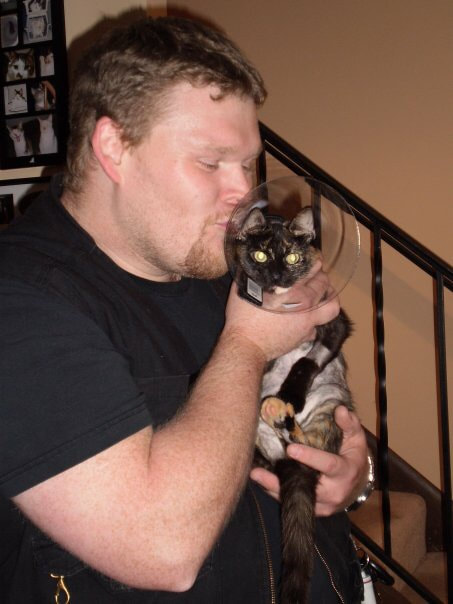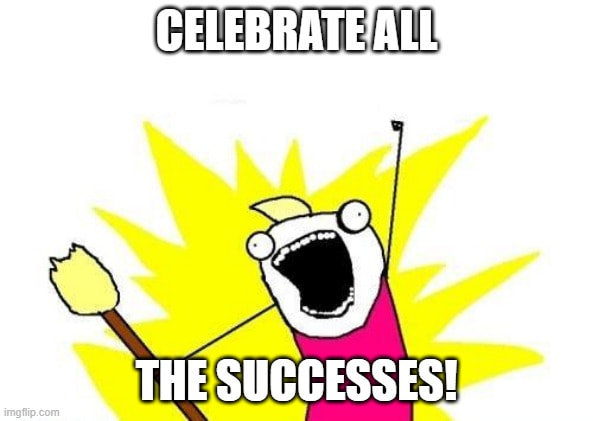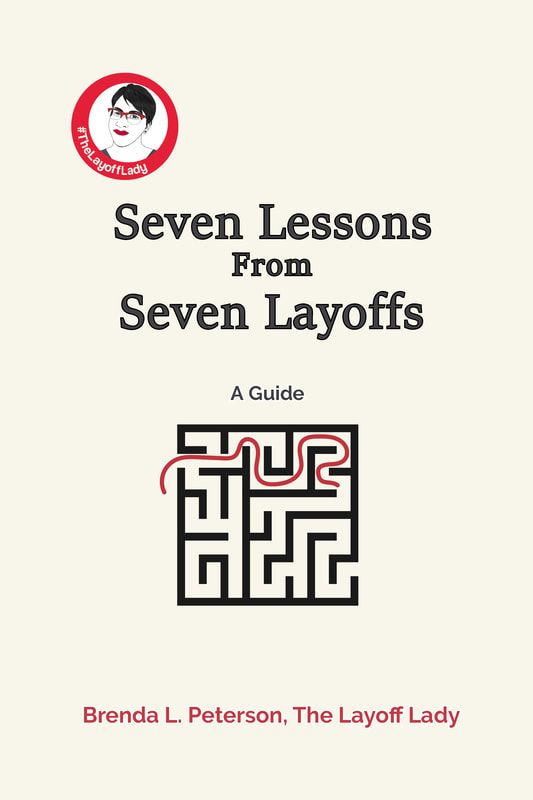|
By Brenda L. Peterson, The Layoff Lady Time Management Challenges Post-LayoffWhen life is run-of-the-mill, it’s still hard to accomplish essential tasks on your to-do list. Losing your job upends your life and gives you a whole new set of challenges. These include uncertainty about the future, new complexities in your financial life, and general worry about how long it might take for things to get back to “normal.” You are now entering a challenging phase in your life where you will experience more rejection in a shorter period of time than ever before. All these factors will inhibit your ability to progress on your goals. Some Days Are More Difficult Than OthersSome days will be amazing. Within a half hour of waking up, you receive an invitation to do a phone screen, notice another hiring manager accepted your LinkedIn connection request, and receive a message from a recruiter for a role that looks promising. Hearing good news fills you with hope and boosts your energy. Soon, you’re updating your budget, making that overdue phone call, and cleaning your whole kitchen. You use that extra burst of energy to start preparing for tomorrow’s phone screen. On that very good day, you may even check a few extra things off your to-do list. Then there will be other days. Before you’ve had your first cup of coffee, you’ll check your email and find a “we’re moving forward with other candidates” message after a “the position has been filled” followed by a “this position has been put on hold indefinitely” message. After a triple dose of rejection, the rest of the day’s planned activities may fall by the wayside. A To-Do List Is Not EnoughYou have probably been relying on the overly simplistic getting-things-done strategies people often bluster about. If your only plan for success involves hammering away, powering through, or pulling yourself up by your bootstraps, you will have problems. It’s an excellent time to remind yourself that bucking/soldiering/cowboying up is not a long-term sustainable strategy. It is a short-term fix you can use occasionally when you have no other options. Making that once-in-a-while solution your go-to move will leave you irritable, burned out, and feeling like the failure you most certainly are not. To find the right new job for you, even the best to-do list won’t ensure success all by itself. You won’t be able to push yourself beyond your limits consistently for very long. Given that many job searches last between a few weeks and several months, you will need to find a way to sustain the effort you’ll need to achieve your job search goals. All Hours Are Not Equally ProductiveWhen I’m in career transition, I spend a lot of time writing, applying for jobs, and interacting on LinkedIn. I also tend to rewatch tv shows and movies. Conventional time management would say that I’m wasting a good chunk of my life watching fictional people live theirs and that I should spend that wasted time on the higher-value items on my to-do lists. In reality, it is not feasible to produce at a high level all the time. Achieving at a high level requires preparation and adequate recovery time. That means if I have two video interviews in one day, I will appear to be doing a lot of nothing for those hours right afterward. The only way I can knock those interviews out of the park is by managing my energy well. Overall, it’s not just about tallying up those hours and having a respectable number. Instead, work with your energy levels, balance planning and doing, and align your activities with your peak productivity times. Managing Your EnergyOverall, it’s not just about tallying up those hours and having a respectable number. Instead, work with your energy levels, balance planning and doing, and align your activities with your peak productivity times. Prioritizing self care, so you have enough energy to perservere, is a great first step. Learn More
0 Comments
By Brenda L. Peterson, The Layoff Lady Job Searching: The Good DaysSome days will be amazing. Within a half hour of waking up, you receive an invitation to do a phone screen, notice another hiring manager accepted your LinkedIn connection request, and receive a message from a recruiter for a role that looks promising. Everything is going great for you. Hearing that good news fills you with hope about the future. You feel appreciated, valued, and worthwhile. Soon, you’re updating your budget, making that overdue phone call, and cleaning your whole kitchen. You use that extra burst of energy to start preparing for tomorrow’s phone screen. Today, you are productivity personified. Job Searching: The Not-So-Good DaysThen there are the other days. You check your email and read, “We will not be moving forward with your application,” then move on to “We regret to inform you,” then finish up with, “This position is no longer available.” You’re not even out of bed, and you already heard you weren’t good enough for three jobs you really wanted. Now, all that good news from the previous day seems irrelevant. Your email has become a scary place where everyone is mean. You hop onto LinkedIn to look for new jobs. While looking at job listings, you fixate on the one or two preferred qualifications you don’t have. You start to customize a resume for one job, then stare at your screen, trying to figure out why anyone would bother hiring you. Now, you're not going to have it in you to be a high achiever. Struggling to SucceedAfter a three-rejection morning, you may feel like a failure, and everything is hopeless. Despite how it feels right then, you are not lazy, a loser, or a failure. Instead, you have probably been going too hard for too long and have little to show for it yet. In addition, you have probably been relying on the overly simplistic getting-things-done strategies people often bluster about. If your only plan for success involves hammering away, powering through, or pulling yourself up by your bootstraps, you will have problems. It’s an excellent time to remind yourself that bucking/soldiering/cowboying up is not a long-term sustainable strategy. It is a short-term fix you can use occasionally when you have no other options. Making that once-in-a-while solution your go-to move will leave you irritable, burned out, and feeling like the failure you most certainly are not. Sustainability and Your Career TransitionYes, you are trying to find a job. Yes, you are trying to keep your finances in check. You also need to be able to continue to keep going sustainably so you can persevere as long as your career transition requires. You won’t be able to push yourself beyond your limits consistently for very long. Given that many job searches last between a few weeks and several months, you will need to find a way to sustain the effort you’ll need to achieve your job search goals. Your Basic Self Care Daily Task ListThere is an art to writing a helpful task list. This basic self-care list includes items that are valuable, easy to achieve, and can be checked off definitely. You can also update these lists to reflect what makes the most sense to you in your life. This is not your "I have accomplished miracles" list. Instead, this is your "I did the basic things I need to stay well so I can prioritize to keep going" list. Morning
Afternoon
Evening
Modifying The ListThis is a good starting point for a basic self-care list. If moving for 30 minutes is too much for you right now, make it 10. If making your bed helps you feel better, consider adding that to your morning list. If you do a load of laundry daily and put it away, fit that in where it makes sense. If you take your vitamins before bed, do that. Do what you need to to do make it yours. This basic self-care list will help you feel better on your hardest days. On an easier day, you'll breeze through these items with no problem and move on to conquering the world. Learn More
Looking BackThere are several days each year when people typically look back and assess their lives. This could be the anniversary of a death, a holiday full of memories, or your birthday. For me, the day I reflect is Groundhog Day. February 2, 2006Early in 2006, my life was at a crossroads. My then-husband and I were in the process of getting divorced, and I was figuring out how to transition from a house to two houses and what co-parenting my 2-year-old daughter would be like. The one shred of stability I had was my job. I was happy to have one thing I could count on not changing. …and then February 2 happened. That morning, I went to work. I took a few minutes between meetings to create a spreadsheet to figure out if I could afford to buy a condo I’d looked at the night before on my own. As I saved my file, I got a tap on the shoulder that I had an impromptu meeting. I grabbed a pen and a legal pad and walked into a conference room full of executives who informed me that my position was eliminated due to restructuring because of the company being acquired. Welcome to layoff #2. I was in shock. I returned to my desk, deleted my spreadsheet (which had just become irrelevant), told my coworker Brad “I’m gone,” and found myself sitting in my car with a box containing all of my formerly workly possessions. From the parking lot of my ex-workplace, I called my soon-to-be ex-husband to tell him about my now ex-job. His only response was, “Huh.” Then, It Got A Little WorseThat weekend, I was on a road trip to visit some of my high school friends for a fun weekend of reminiscing and going to the Snowflake Ski Jump. On my way there, a local cop pulled me over for speeding. As I sat there, I glanced at the notification I’d just received from unemployment sitting in my passenger seat—the one that said I’d receive less money than the last time I’d been laid off—meaning I wouldn’t be bringing enough money in to cover my half of the mortgage. As the officer approached my window, I could feel the tears well up. I could not get a ticket, too. I would cry (as I often heard people threaten to do), but this was no empty threat that would come to bear only through theatrics. I was legit going to fall apart if this happened. This moment—sitting in the car with indications of my life failures greatest hits smacking me in the face was a low point in my life—rivaled only by my dad’s unexpected death when I was still in high school. Then, It Got a Little BetterFortunately, I think because of my street cred, which included being a native of a town nearby, I drove away ticket free. One thing had gone okay. Then I saw friends, connected with new people, and spent more time with my daughter. I also had the time and space to figure out what to do with myself now. The Transition BeginsIt was an ugly, ugly few months. I applied for countless jobs. I put our house up for sale. My daughter’s dad (new language from the book Mom’s House, Dad’s House) and I decided to move in tandem to Minneapolis, Minnesota from Madison, Wisconsin. I looked for jobs, made business connections, and stayed with friends on the way to and from my regular trips to Minneapolis. I didn’t sleep well for months. A tree fell down in my front yard the day of my open house, so I figured out how to have a giant tree removed while driving on I-90 back home from a job interview. That May, I found a job, a preschool for my daughter, a new place to live, and reconnected with one of my best friends from high school. Later, my daughter's dad found a job and moved to Minneapolis, along with his new girlfriend (a lovely person and good to my daughter). Then, to mix it up, I totaled my car, dated and broke up with a couple of people, and got Shingles three times in a row. Some days, after work, I would lie on my floor and look at the ceiling in my apartment, my low-cost therapy as I acclimated to all of the life changes. I adjusted to my new normal after going through every significant life change (save a death in the family and someone I love going to prison) I could think of to endure. Then, It Kept Getting BetterIn October, on the same day, I was approved for a car loan and found out that my house in Madison had new owners. Over time, I made two great friends from my job and got comfortable in a new city. I started dating someone who was great, then bought a house with and married that guy--who is an awesome stepdad and cat dad. I got laid off again and got another good job, then got laid off again and got an even better job. Things have gone pretty well through layoffs, reemployments, trials and tribulations. Through it all, my husband is awesome, my now-adult daughter is amazing, and the cats mostly tolerate my presence. A Frame of Reference for GratitudeSometimes, I see people who are unhappy with what they have. The strange upside of having gone through rough times is that it gives you a frame of reference. It reminds me to be grateful for the roof over our heads, my husband playing video games with our two cats in his lap, my healthy, happy daughter, and an ongoing stream of new challenges and adventures. I’m grateful for being active, able-bodied, and having a strong sense of well-being. I am grateful for winter heat, summer air conditioning, and all the machines that do my housework. I treasure mother/daughter movie nights, trips to the skating rink, and building relationships with new friends and colleagues. I value my roller derby skates, my outside roller skates, and my inline skates. I appreciate my cats, Zippy and Meathook, and the combination of disdain and affection they have for me. I am genuinely grateful for it all. Groundhog Day is my annual reminder to remember all these things. Learn More
by Brenda L. Peterson, The Layoff Lady So Much To DoAs our lives get busy, we feel like we're not accomplishing as much as we should be. Even if you're someone who makes a to-do list, too often, we quickly forget about all those things that are done and focus only on what else we should have accomplished. This is a great way to bring yourself down. In life in general, and especially during a job search, it's easy to forget everything we managed to get done. Especially during challenging times, it's essential to make a note of what is going well. Celebrating AccomplishmentsYour successes can be anything. They can be fun things you did, achievements, or accomplishments that made you let out a huge audible sigh of relief that they were finally complete. It's really about acknowledging that you did so that you realize that you're not just sitting around NOT ACCOMPLISHING ANYTHING. Instead, it's a reminder of how amazing you are. Chances are when you review your success list, you'll be reminded of even more things to add--and that's really the point. My Success List
Celebrating Successes Brings More SuccessIt's incredible, really. Creating a list of accomplishments, whether small, medium, or large, helps so much. When I started, I had a hard time thinking of anything to write. Then, as I got going, it was hard to stop. Taking time regularly to acknowledge positive actions and accomplishments makes all the difference. What would you include in your success list? Feel free to share your thoughts in the comments. Learn More
By Brenda L. Peterson, The Layoff Lady Don't Go It AloneLife is challenging when nothing in particular is happening. When you're going through a job change (especially one you didn't plan), it's even harder. While I'm a fan of self-reliance, I also know the value of finding people who want to support you and letting them do it. You're not weak for needing people. You are smart for planning ahead for what you will need. You Need Help Because This is HardI have been through a post-layoff job transition 7 times, and it is difficult each and every time. There is the fear that it will just never end and you'll be drifting for eternity trying to find paid work where you can pay your bills--much less in a job you want. You worry that you'll have to settle for something that may be even worse than the worst job you've ever had. You also worry that you'll run out of money and not be able to pay your bills and lose everything you own and everyone you've ever loved. While your rational mind knows this is all pretty unlikely, there will be moments when it all seems hopeless. That's where your support network comes in. No matter how resilient and downright badass you are, doing this alone makes it way harder. People Want to Help You: Make Sure to Let ThemAs an extra added bonus, people want to help you! I'm always inspired by people who come out of the woodwork to check on me, tell me about an open position, thank me for helping them once upon a time, or offer to refer me for a role. Everyone has struggled with something at one time or another, and someone has helped them. Let other people help you. Building Your TeamIt also takes a village to get you through a career transition. Relying on one person for everything is all kinds of stressful. Know that people want to help, and it's a matter of figuring out what you need, letting people know, and reaching out to people when you need it. Going through a job search is challenging even in the best of circumstances. If you're starting from a layoff (especially the part where someone else got to make a big, uninvited life decision for you) it can be even more challenging. Types of Help You NeedHere's a starter list of the types of help you may need during your job transition. More specifically, here is some of what I needed. Use this as a starting point and add details as it helps you:
Who Can HelpWhen it comes to help, I start with my inner circle--close friends and family. I'm also sure to widen my support team beyond them, too. I also move beyond that immediate group. I interact with my LinkedIn connections. I tap into online groups including job search groups, The White Box Club, and even LinkedIn groups focusing on networking or a content area (like sales enablement). I interact with in-person membership groups like ATD or the Omaha OD Network. Or I seek out non-work connections through social Meetup groups or activities. Sometimes, I just spend time in coffee shops to indirectly interact with other people. It's a matter of figuring out what you need and finding a person to help. Asking for HelpKnow, too, that there will be times when you need to straight up reach out to someone because you need help. Each person will have their areas of interest and expertise, so be sure to keep that in mind when asking for help. It's helpful to consider who you might contact for different needs. Here are a few cases where I reach out to different people to ask for help:
Learn Moreby Brenda L. Peterson, The Layoff Lady Welcome To The SuckThe process of being "in transition" is like no other. Not only do you have no outwardly dictated plans on any given weekday, but you don't know how long your unstructured time off will last (another week, another month, a few months?) or what your day-to-day life will look like once the transition is over. There's also the issue of figuring out what to do with yourself when you're not job searching--in addition to feeling guilty because you're not doing more job searching. As an extra added bonus, there are the occasional freakouts about money, nervousness about career prospects, and the once-in-a-great-while "I will never be employed ever again!" full-on panic. Suffice it to say that job searching can be full of obstacles that make the process hard to manage. Knowing the possible issues is the first step towards figuring out how to mitigate each challenge and move forward. Here are five unfortunate reasons I have discovered about dealing with an unexpected career transition and a few coping strategies for dealing with each. Reason 1: You Won't Always Interview For "The Perfect Job."Congratulations! You just found THE PERFECT JOB! You have all of the required and preferred qualifications! It's at the right level with your dream company, and you even know someone who works there who will say great things about you! Surely your days of job searching are coming to a close because you are the purple squirrel for THE PERFECT JOB! Enter reality. I'm sorry to say that you may not even manage to get so much as an initial phone screen for this position. Even when you feel like the job was tailor-made for you, someone in a decision-making position may not agree. Why might that happen? For one, the position may not actually be available. Some organizations post job openings to gauge interest in the position even though they have no plans to hire anytime soon. Conversely, the role may have been open for a while, and the selection process may be well underway. There could also be an internal person who will take the job without additional people being considered. In some cases, companies may have a policy that they need to post positions externally for a given length of time, even though they already have a candidate in mind. Still other organizations may decide part way through the hiring process to leave a position unfilled but not remove it from their posted jobs. Assuming the job is really, and for true accepting applicants, there may still be issues. For one, key organizational stakeholders may lack common agreement on what a job role will do and what constitutes being a well-qualified candidate. Decision makers may also each have their own non-negotiable requirements for the qualifications for the potential hire--which may or may not relate to the person's ability to do the job. Remember that no matter what the issue is, it seldom has anything to do with you personally. It's just the life of recruiting for and trying to fill positions with the best candidates they can find--sometimes with people who are (unfortunately) not you. Coping Strategies
Reason 2: People Who Aren't Good At Their Jobs Will Make It Hard.Remember a time at your last job when you had to deal with someone who was not good at what they did for a living? Like the rude salesperson who never did their paperwork right and missed deadlines? Or the recruiter who didn't keep good notes and forgot who they had phone screened? Or the company leader who wanted to approve every decision but would become unavailable for a week or more? During your job search, you'll realize those people exist in other organizations, too, and they sometimes stand between you and the job you want. It could come in the form of an administrative assistant who is supposed to coordinate your travel for an in-person interview--who didn't make reservations and then went on vacation, leaving you scrambling to find someone else to help. It may be the recruiter who doesn't realize that a learning management system and a learning content management system are roughly the same thing and wrongly screens you out early in the process. It may be the hiring manager who is overly concerned with your lack of industry knowledge and doesn't believe that anyone could just LEARN what they now know. It may be an insecure possible future coworker who wants to avoid hiring someone who might outshine them. Like the rest of life, things are not always "fair." You may not get the job, even if you are a strong candidate. And so it goes Coping Strategies
Reason 3: Along The Way, Someone Will Dislike You.I don't know about you, but I am friggin' delightful. I'm also able to connect and get along well with most people. However, during the interview process, no matter who I am or am not, it will not match what someone else thinks the candidate for the position should be. Whether they thought I should have smiled more, made a different outfit choice, or given more detailed examples, someone's negative reaction to who I am may take me out of the running for a job. People often have their own pet theories about what they'd like in a coworker, manager, or direct report. They may be convinced that having the title "account manager" is pivotal for success, that all candidates must have a master's degree, or that people who ride horses are pretentious. You might also have the misfortune of reminding them of the mean girl in high school and BOOM--instant dislike. Again, life isn't necessarily "fair." Coping Strategies
Reason 4. The Process May Be All Over The Place.The job interview process can be anything from one interview to many, many, many interviews, depending on the organization and the role. Typically, I expect to have a phone screen with an entry-level HR person to confirm that I can speak in sentences, an in-person interview with the manager and potential coworkers, and a final interview to demonstrate skills and/or meet with a company VP. In addition, a given employer may want you to do more to show that you have the skills necessary to do the job. For example, you might be asked to pass written assessments, submit work samples, present to a group or complete a project. They may even have you come into the office for the day and "work" as if you are already in the position you are applying for. Interviews could take place over the phone, via web conference, through email, in person, or (more likely) a combination of all of the above. Some companies will have a pre-defined, structured process for the pacing and format of interviews. Other organizations will appear to be making it up as they go along. You may also inadvertently skip steps and realize near the end of the process that you should have talked about a basic topic like salary range or work location. Sometimes, it may seem that the interview process is never-ending because you have yet to talk with every single person in the organization. Coping Strategies
Reason 5: Their "Fast" And Yours May Be Different.I remember being a child and how LONG the year seemed. It always took forever to get from my birthday at the end of August to Christmas. Enter adulthood. I find myself consistently marveling that it's already whatever day/month/season it is because it seems it was just that other day/month/season. In this scenario, your employer is the adult, and you are the child. Some companies will be motivated to fill positions and move quickly. In contrast, others might have days, weeks, or even months between your contact with them--all because something that wasn't filling that position became a priority. What about that two days the employer estimated it would take them to contact you? It may turn into a week or two. Since they're busy addressing customer issues, traveling to client sites, and doing their expense reports, they didn't even realize it took that long. Or, as any job seeker doesn't want to hear, you may not be getting the job. Responding to a candidate quickly usually shows that the potential employer is interested. In many cases, taking longer to respond may indicate lagging interest. Such is how the whole process works. Coping Strategies
Learn MoreBy Brenda L. Peterson, The Layoff Lady The Adventure of Career TransitionSince forever, I have worked in the field of learning and development. I have been laid off a great many times due to economic downturns, companies being bought or sold, new company leadership, or good old fashion reorganizations. While each period of unplanned job transition is rough in its own way, here are three core truths that help me weather the storm each time I search for a new work home. Truth 1: Working Time Goes Slower Than Non-Working Time.When you're a hiring manager, you have a ton going on, and only one of those things is hiring a new person. You're still trying to manage your team, meet deadlines, troubleshoot customer problems, and juggle all the people you're considering for your open position. In an interview, when one candidate asks about the hiring process, you tell them you should know who will move on to the next steps in the process "by the end of this week"--and at the time, you believe that is a reasonable deadline. Then there is a software release with a bug that causes three meetings to be scheduled with big clients, or someone quits suddenly, leaving a lot of arrangements to be made, or your child has to be picked up from daycare with the flu. Friday comes and goes, and getting in touch with a candidate falls off your radar until next week. Meanwhile, as a job seeker, you put a note on your calendar that you'll know one way or another by Friday. Then you analyze every syllable you uttered in the interview, hoping you didn't say anything awful. You rethink a facial expression you interpreted as approving and wonder if it really was that at all. You suffer through Saturday, Sunday, and Monday, secretly worrying that you will never work again. Ever. Instead of spiraling, take action to get you closer to your job of being happily, gainfully employed. After the interview, email the hiring manager a thank you message and send them a personalized connection request on LinkedIn. Put a note on your calendar for a few days after the hiring manager said they would contact you. Reach out to them at that time, including a few pleasantries, reiterating your interest in the role, and asking for an update. Will you get the job? Who knows. You did your part, identified what you can work on, and will continue to learn and grow as you go through the process for more roles. In addition, network with three more people and apply for three more jobs. Truth 2: It's Not "Your Job" Until You Receive A Paycheck.Inevitably as a job searcher, you run across it. THE job. It's the one you know is meant to be yours. It's perfect--easy commute, a great title, the go-to company, exactly what you are qualified (and want) to do. In your head you know it--this is MY job. You picture your new business cards, where you'll park, and how you'll introduce yourself as the "Director of Awesomeness" for this perfect company. You think--why should I even bother applying for anything else because this is SO my job! Except, well, it's not actually your job yet. You're looking at it and seeing yourself in it, but it's not real. You don't work there. No one is sending you a paycheck for it. They don't even know your name yet. This MAY be the job you eventually get, but nothing is done yet. You know what else? It may not end up being your job. You need to remind yourself that it's not a done deal. Apply for that job--even work hard to get it. Know, though, that you may end up not even getting called in for an interview. This doesn't mean you're not still awesome. There's just a lot going on. There may be an internal candidate, or a previous coworker of the hiring manager, or someone who has a referral from a college friend, or someone who has even slightly more of a qualification that didn't make that job posting. Instead of spiraling, take action to get you closer to your job of being happily, gainfully employed. Whenever you fall in love with a job or think of something as "your job,” make an extra effort to apply for additional jobs. If the job you see yourself in works out, great. If not, you're still working towards your ultimate goal of finding a new role (complete with a paycheck), whichever one that might be. In addition, network with three more people and apply for three more jobs. Truth 3: You Only Need One Job.Applying for jobs is a process. Looking back at my records, I have typically applied for between 40 and 100 jobs when I've been in career transition. It's easy to get discouraged. Sometimes you apply and hear back a fat lot of nothing. Sometimes my stomach sinks when I see a job that I've applied for (and was quickly rejected), and it's reposted, and realizing that they will hire "not me" for that role. It's hard when the job where you interviewed a ton of times tells you they really liked you, but went with an internal candidate. It's rough to hear that you were great, but that you came in second. There is so much rejection in the job search process that you’ll inevitably feel down, like a loser, and like there is no hope. At the end of the day, though, you only need one job. You need one organization to tell you "yes.” You need one place where you and the employer agree to work together. When I remind myself that I only need an ultimate success rate of 1 in 100 to be happily, gainfully employed, it makes it all seem much more manageable. All those no answers get you to the one yes you need. The trick is that you don't know which one will be that yes. Instead of spiraling, take action to get you closer to your job of being happily, gainfully employed. In addition, network with three more people and apply for three more jobs. Learn More |

Just get laid off?
Click here for info on what to do first. Author7-time layoff survivor Brenda L. Peterson, The Layoff Lady, waxes poetic on layoffs, job transitions, & career resilience. Buy The Book!Were you recently laid off from your job and need a roadmap for what's next? Pick up a copy of my book, Seven Lessons From Seven Layoffs: A Guide!
Categories
All
Archives
April 2024
|
















